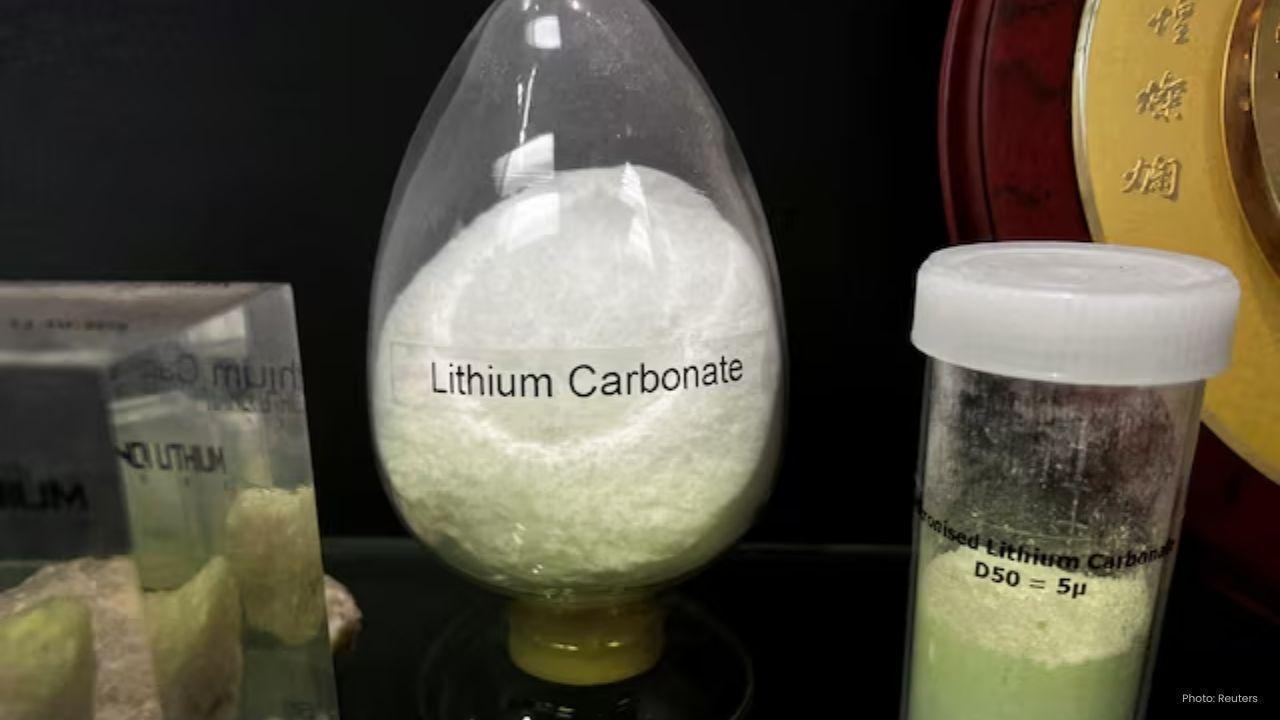
Post by : Vansh
The idea of living in space once felt like a dream pulled from science fiction. But today, with major advances in technology, it's becoming a real possibility. From smart habitats on the Moon to AI-powered robots exploring distant planets, we’re witnessing a transformation in how humans survive, work, and thrive far beyond Earth’s atmosphere. "Inside Tomorrow: How Technology Is Redefining Life in Space and Beyond" takes a closer look at these exciting changes—and how they are shaping the future of space life as we know it.
When we think about living in space, the first challenge that comes to mind is survival. The harsh conditions of space—extreme temperatures, radiation, and zero gravity—make human habitation incredibly difficult. But thanks to technological innovation, scientists are designing smart habitats that can withstand these conditions while offering safety and comfort.
NASA, along with private companies like SpaceX and Blue Origin, is investing in modular habitats for the Moon and Mars. These structures use smart materials that can self-repair, regulate temperature, and even recycle air and water. AI systems monitor life support and energy consumption, helping astronauts stay safe and healthy with minimal manual intervention.
These habitats represent a giant leap toward permanent living in space, making long-term missions not just possible but practical.
Artificial Intelligence and robotics are no longer just tools—they are partners in the space journey. On the International Space Station (ISS), robots like Astrobee assist astronauts with daily tasks, inspections, and repairs. These floating cubes are voice-activated, smart, and designed to navigate weightlessness efficiently.
AI plays a crucial role in decision-making, especially when real-time communication with Earth is delayed. On Mars missions, for example, rovers use AI to choose the safest and most efficient paths, identify rock samples, and avoid obstacles—without waiting for human instructions.
In the future, AI is expected to manage everything from food production in space farms to mental health support systems for astronauts on long-duration missions.
Food is one of the biggest challenges in space. Carrying enough supplies for long missions isn’t practical, especially for future Mars colonies. That’s why researchers are developing technology for growing food in space.
Hydroponic and aeroponic systems—where plants grow without soil—are already being tested aboard the ISS. These systems recycle water and use LED lighting to mimic Earth’s sunlight. Scientists are also experimenting with genetically modified plants that grow faster and require fewer resources.
Space agriculture not only supports human survival but also provides fresh produce that boosts morale and mental well-being for astronauts living far from Earth.
Maintaining health in space is more complex than on Earth. Microgravity affects bones, muscles, and even heart function. Traditional medical care is not always possible, especially on long missions.
That’s where telemedicine and wearable health tech come in. Smart suits embedded with sensors track heart rate, hydration, muscle activity, and more. This data is sent to AI systems that alert astronauts to any health concerns and suggest treatments. If needed, it can also be transmitted back to Earth-based doctors for real-time consultation.
Future missions are expected to carry compact, AI-assisted diagnostic devices that can detect and treat infections, injuries, or medical conditions without needing a full medical team onboard.
Communication between Earth and space is another area where technology is making big leaps. Traditional radio signals take minutes to hours to travel between planets. To solve this, engineers are working on deep-space communication networks using lasers and delay-tolerant networking (DTN).
These new systems will allow astronauts to stay in touch with Earth, access cloud-based data, and even use the internet while exploring distant worlds. Staying connected doesn’t just mean communication—it’s also key for sharing research, monitoring systems, and staying emotionally healthy through video calls with loved ones.
As the possibility of colonizing Mars becomes more real, scientists and engineers are focusing on how to build a self-sustaining lifestyle. From mining water beneath the Martian surface to building solar-powered energy grids, the idea is to create a home that doesn’t rely on constant resupply missions from Earth.
"Inside Tomorrow: How Technology Is Redefining Life in Space and Beyond" explores this vision where humans not only visit planets but stay there, work, raise families, and build communities. This multi-planetary future could become a reality within the next few decades if current progress continues.
Private companies are playing a huge role in making space living more than just a dream. SpaceX’s Starship, designed for long-distance space travel, aims to carry humans to Mars. Blue Origin is working on habitats for the Moon, while other startups are developing space construction tech, space tourism, and AI-guided shuttles.
At the same time, international collaborations like NASA’s Artemis program, the European Space Agency’s research, and contributions from countries like India, China, and the UAE are showing that space is no longer a solo mission. It’s a global effort—and technology is the bridge that makes it possible.
The views and information presented in this article are intended for general knowledge and educational purposes only. MiddleEastBulletin does not claim responsibility for any decisions made based on this content. Readers are advised to consult official sources for the latest updates on space and technology advancements.










Pageau's Overtime Goal Propels Islanders to 4-3 Victory Over Golden Knights
In a thrilling overtime finish, Jean-Gabriel Pageau leads the Islanders past the Golden Knights 4-3,

MLB Awards: deGrom and Acuna Jr. Shine as Comeback Players
Jacob deGrom and Ronald Acuna Jr. celebrated MLB Comeback Player Awards, alongside Ohtani and Judge

Portugal Confronts Ireland in Pivotal World Cup Qualifier
Portugal, led by Cristiano Ronaldo, faces Ireland in a vital Group F World Cup qualifier that could

Haaland's Brilliance Leads Norway to 4-1 Victory Against Estonia
Erling Haaland showcases leadership as Norway crushes Estonia 4-1, boosting their World Cup ambition

Hawks Triumph Over Jazz; Suns and Raptors Secure Victories
Hawks' Onyeka Okongwu and Jalen Johnson lead in a thrilling win against Jazz; Suns and Raptors also

Indian Men's Recurve Team Clinches First Asian Gold in Nearly Two Decades
The Indian men's recurve team triumphed over South Korea, securing their first Asian gold in 18 year